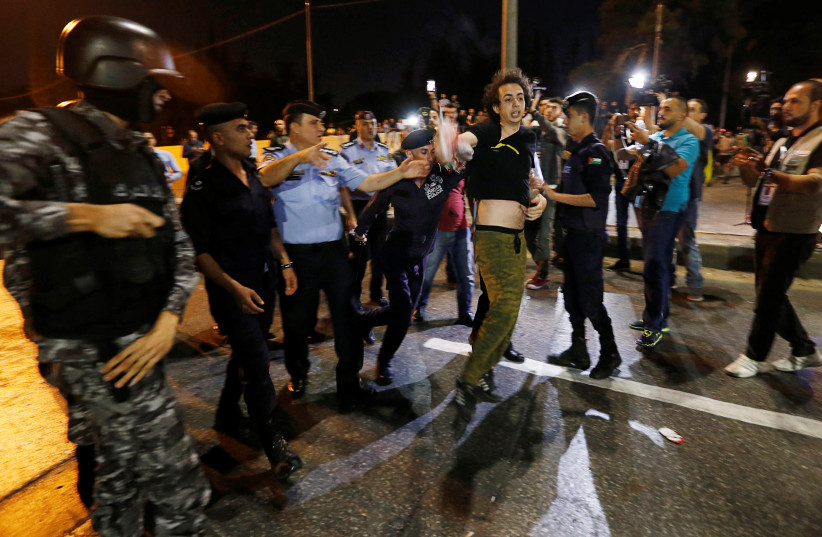Jordanians staged sit-ins on Friday and activists called for more protests over fuel price rises that have added to a cost-of-living squeeze, a day after riots in a southern city left one police officer dead, witnesses and security sources said.
The authorities said the policeman was killed on Thursday night by a gunshot fired by an unidentified individual when armed officers entered a neighborhood of Maan to quell riots. Youths had attacked government property in the city, witnesses said.
Growing tensions
Tensions have mounted in Maan and several cities in southern Jordan in particular after sporadic strikes by truck drivers protesting against high fuel prices and demanding cuts in diesel prices. Fuel rises have added to the squeeze on households.
Interior Minister Mazen Farrayeh told a news conference that the government will apply tough steps and redeploy more anti-riot police against demonstrators who protest violently.

"We have seen a large jump in violent acts," he said. "After what happened, there will be tougher security measures to reinforce the security forces in the areas that witness such acts."
Although the streets were calm on Friday, sporadic protests continued with a sit-in in front of Maan's main mosque and a mosque in the capital Amman after Friday prayers, while activists called for more demonstrations.
Overnight, riot police chased scores of youths throwing stones in Amman, Zarqa, Irbid and other cities where Farrayeh said rioters torched public property, vandalized state buildings and burned tires that closed major highways across the kingdom.
Internet users and activists said Internet services faced slowdowns in several regions, disrupting social media platforms activists used to share footage of clashes with police.
The government has promised to examine truck strikers' demands but says it has already paid more than 500 million dinars ($700 million) to cap fuel prices this year and cannot do much more if it wants to avoid breaching an International Monetary Fund deal.
Other protests in recent years have usually been peaceful and involved demands for democratic reforms and calls to curb corruption.
